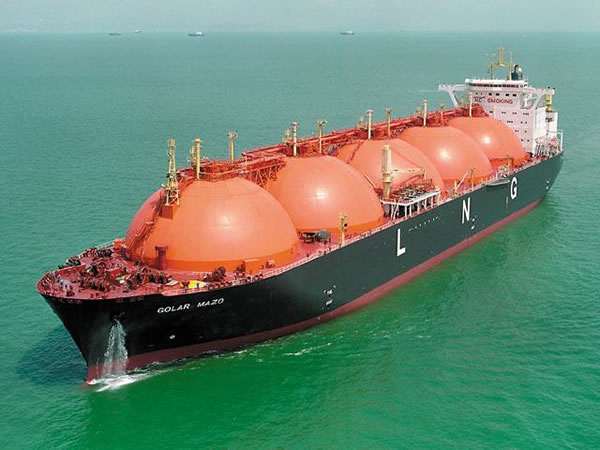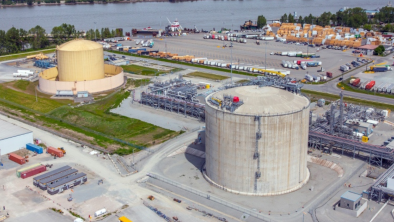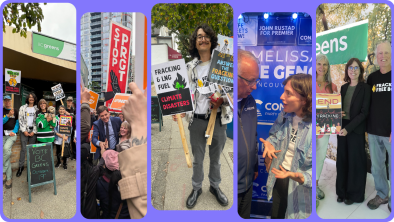B.C.'s LNG Industry Grows As Our Fresh Water Supply Shrinks

Huffington Post BC
By Eoin Madden
June 5, 2013
Recently there has been a lot of discussion around the potential for massive growth in the export of liquefied natural gas (LNG) from B.C. British Columbians have been wooed with claims from the provincial government and the gas industry about the promise of economic prosperity that would come from exporting these products. But what they aren't telling us is this resource comes with a serious risk.
Most of the gas that would feed the province's monster LNG industry will be obtained using a hazardous extraction method known as hydraulic fracturing (or "fracking").
Most of the province's conventional natural gas has already been extracted. The remaining gas is hard to get, trapped deep below the ground in shale bedrock, so it's primarily sourced through the growing industry practice of fracking. Natural gas extraction isn't so natural anymore.
In order to produce fracked gas, an enormous amount of our fresh water is rendered toxic. Fracking fluid - a slurry of water, toxic chemicals, radioactive substances and other hard materials - is injected deep underground at very high pressures in order to force the gas out. Each fracking project can use up to 5 million gallons of water.
There are currently permits in B.C. gifting the gas industry 60 million gallons of our freshwater - from 540 of our precious creeks, rivers and lakes - every single day. To put this amount into perspective, that's twice the amount the city of Victoria uses on a daily basis.
In northern B.C., where companies have found large deposits of gas trapped in shale bedrock, local communities have had their freshwater supplies commandeered by the gas industry. With a well pad positioned every few kilometres, the last remaining stretches of genuine wilderness could be left bleeding methane and lethal sour gas - both products of the fracking process. The level to which toxins and radioactive materials by-products are harming local communities has yet been examined or discussed.
In response to public concerns, the Wilderness Committee launched a tour of B.C.'s southern interior region to host a series of public forums on gas exports and fracking. What I learned from these outreach events is that folks in B.C. sincerely wish to take on the challenge of climate change. What had brought them out to speak at our forums was the love affair that British Columbians have with the wild lands of this province.
Recently, two large LNG plants have been given the go-ahead in B.C.'s north coast. At least another four are being proposed by a variety of operators, with British industry giant BG Group claiming it wants to export 3.3 billion cubic feet of gas per day. This one plant would export the same amount of gas as is currently produced in all of B.C..
It takes a whole lot of energy to freeze and compress this fracked gas into its liquefied form - ready to be loaded onto tankers. In fact, if all proposed LNG plants are built, the industry will require as much electrical energy as currently used by the entire province. LNG plants typically burn gas to run their facilities, which means that the level of greenhouse gases (GHGs) that will be produced by these plants will destroy B.C.'s position as a climate leader - not to mention nullifying all the hard work that British Columbians have put into reducing our carbon footprint.
The communities where LNG plants are located are likely to see a huge impact on their local air quality. In return, the LNG industry will provide us with very few long-term jobs or income, and will maintain our dependency on fossil fuel exports far into our children's future.
The need for a thorough review of the gas industry's impact on our natural environment could not be more pressing. It is clear that our political leaders wish to grant these companies a free pass in the rush to frack our landscape. There has been a distinct lack of clarity when it comes to the regulation of water usage in fracking, as well as the potential for public participation in the major decision making processes governing the fracking industry for concerned peoples such as First Nations.
The B.C. government and the gas industry are asking us to bet our economic future - and our environment - on Liquefied Fracked Gas. We need to look closely at the offer that's on the table, and examine the hidden consequences before it's too late to say no.


